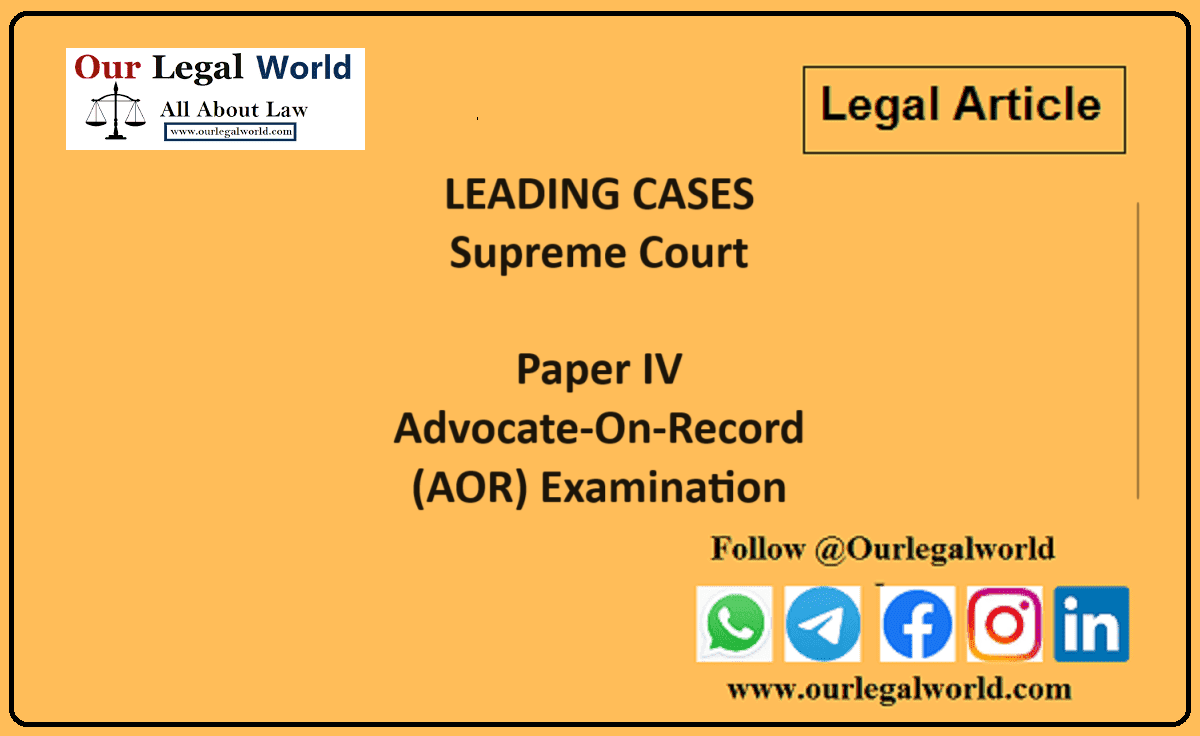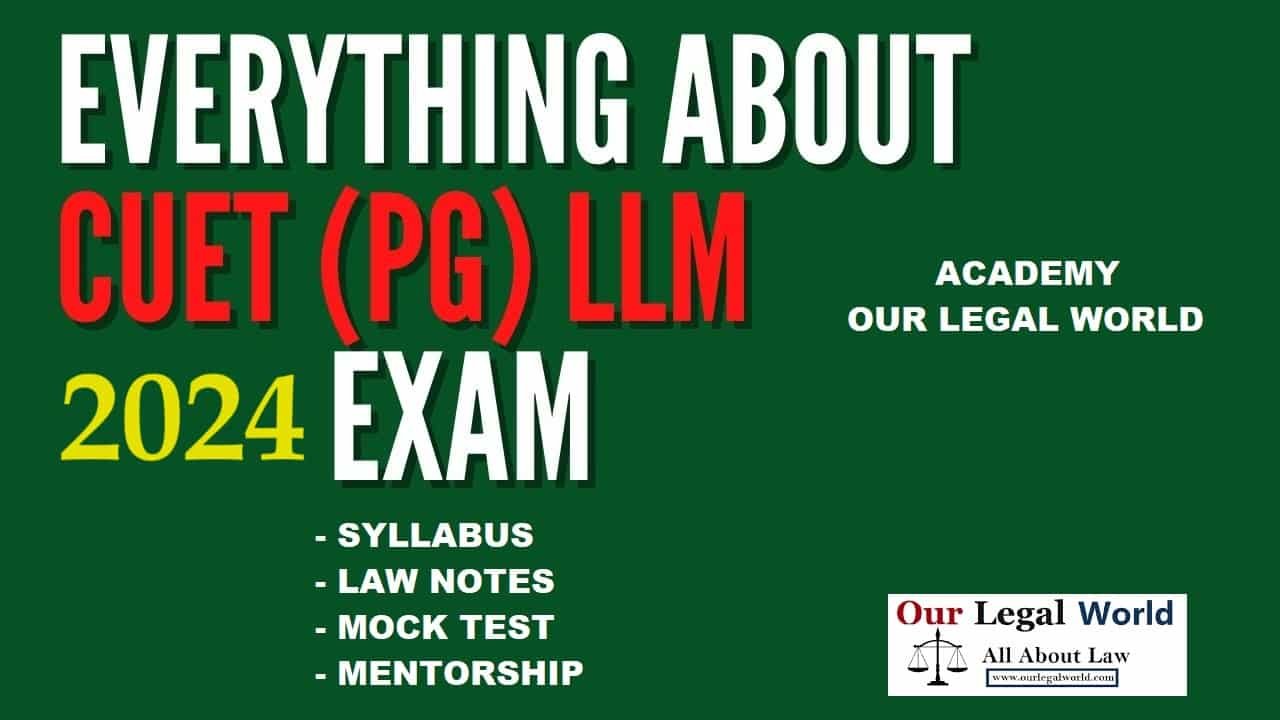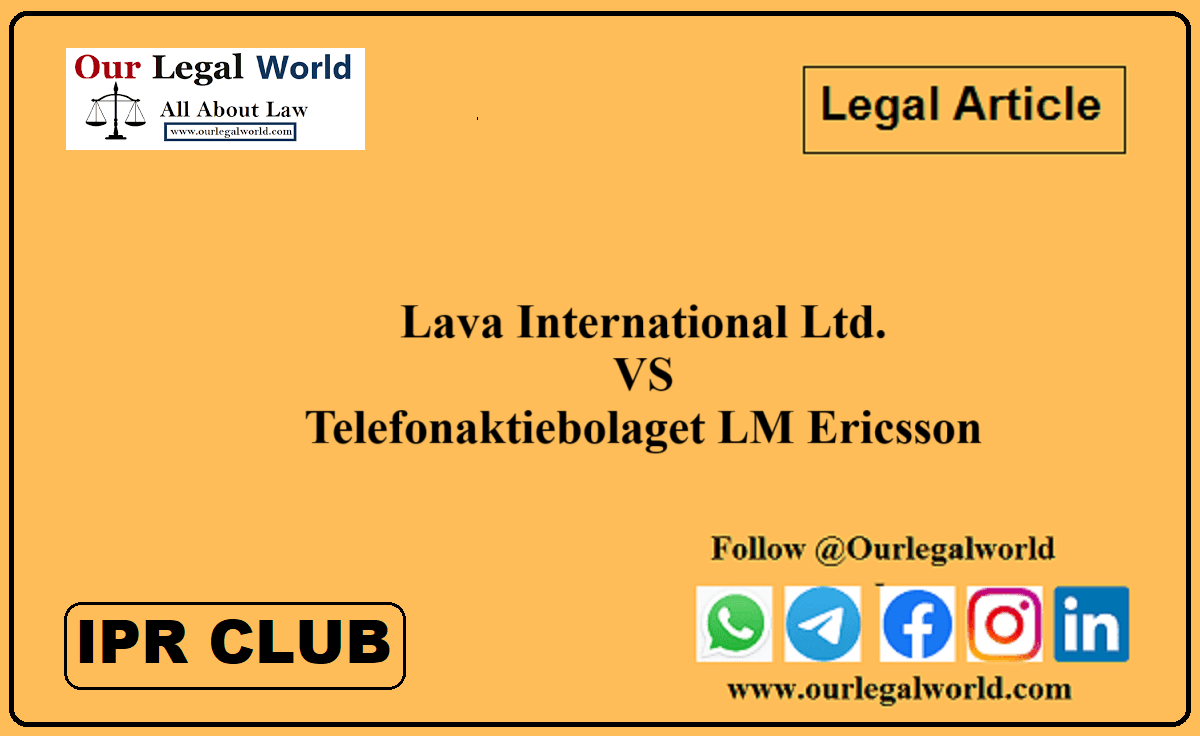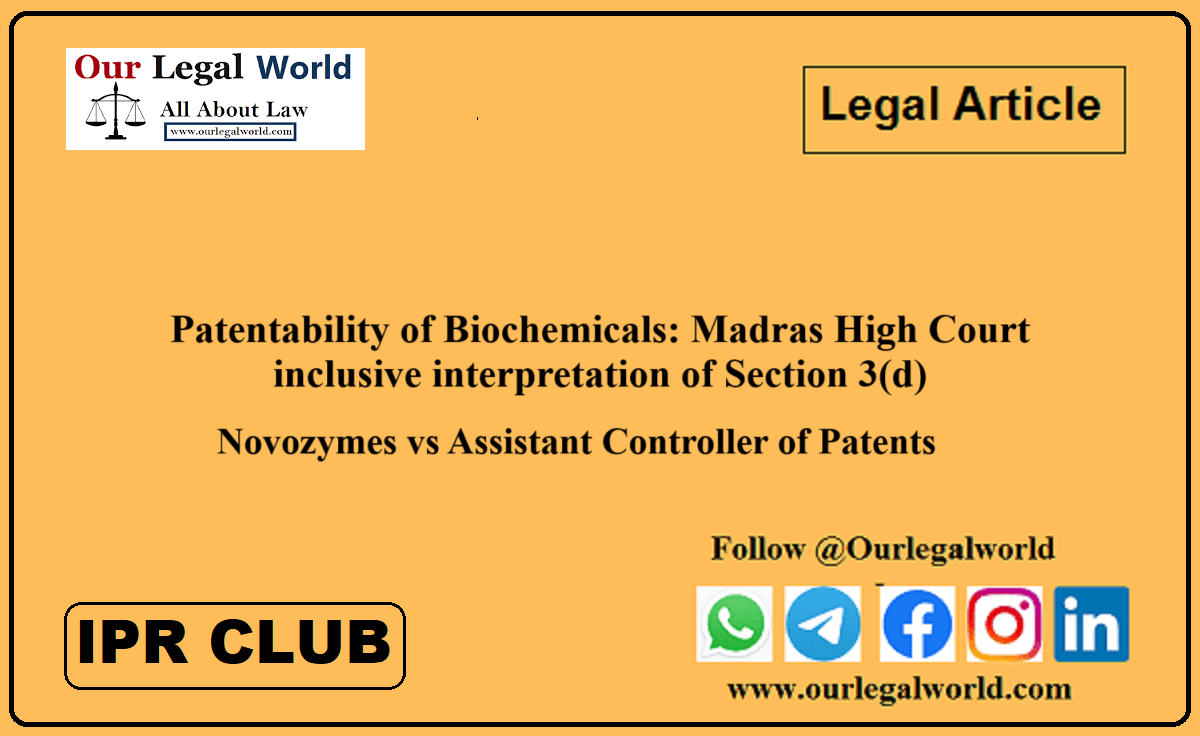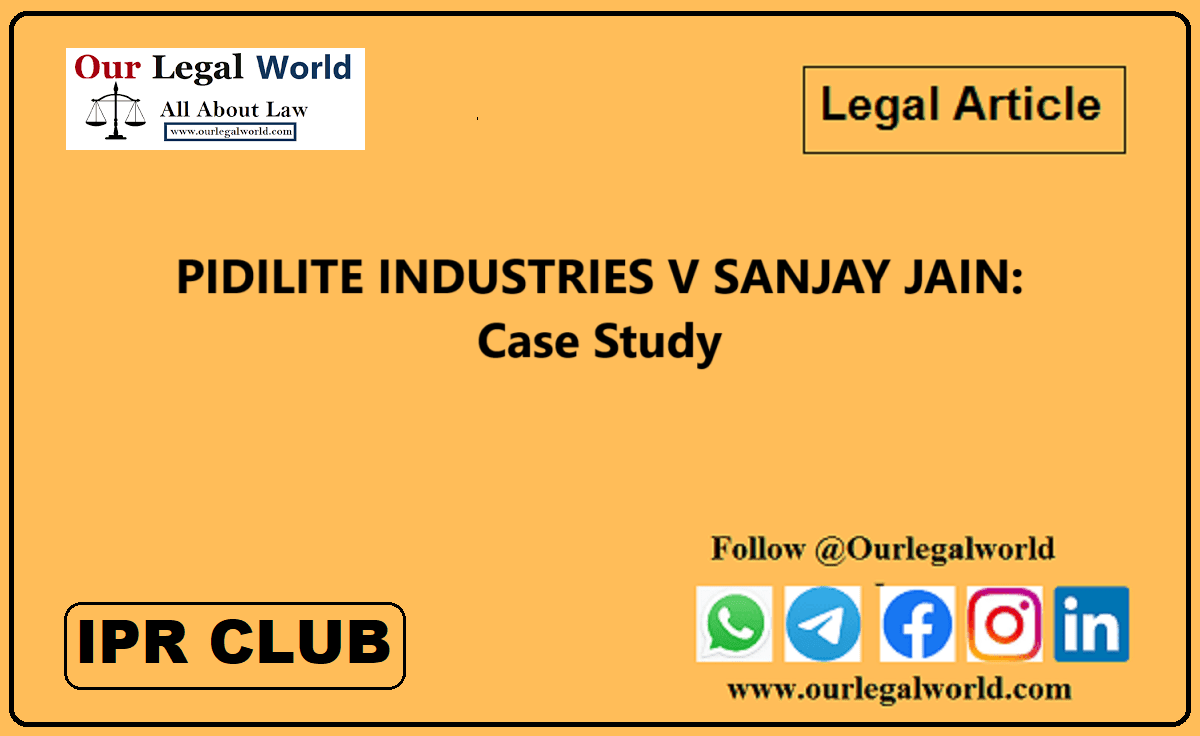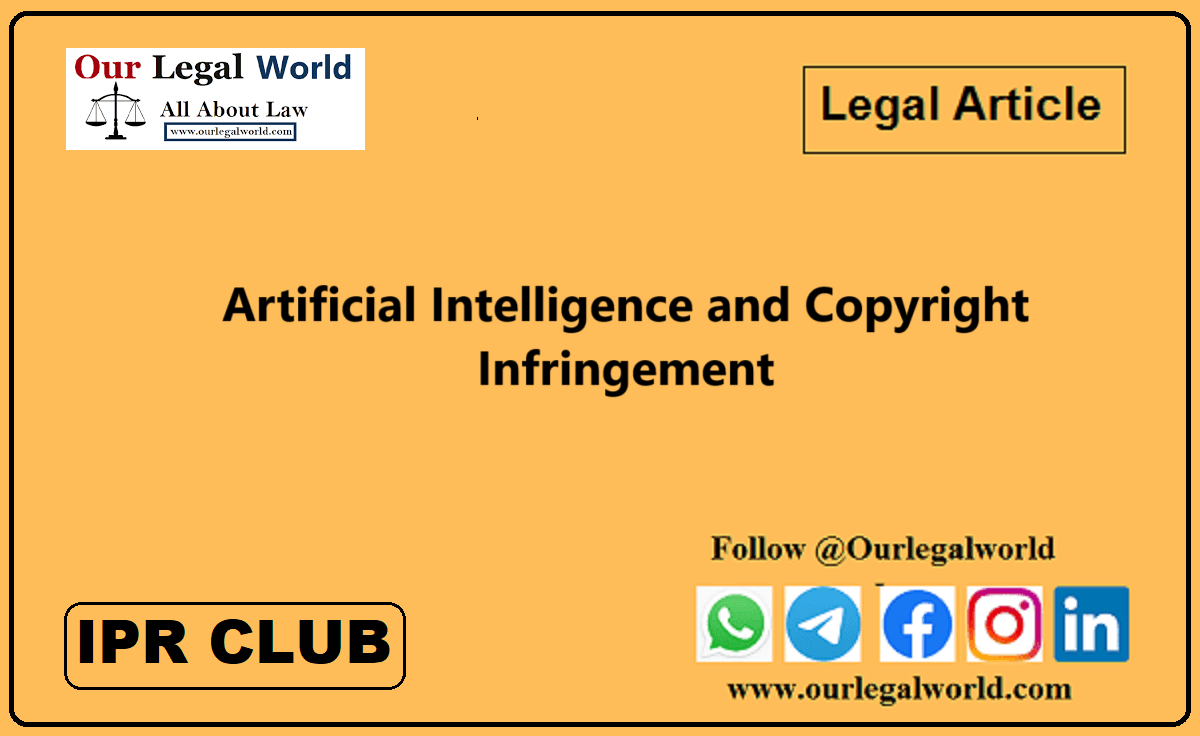Right to Clean Water as a Fundamental Rights
Introduction
Under the Constitution of India, the right to a healthy environment is a Fundamental Right protected under Article 21 of the Constitution. Development and environment are two issues, which cannot be estranged, as both are equally important for the amelioration of the future environment and sustainability. Such environmental issues are to be gripped effectively with the active participation of all the citizens. The Constitution of India guarantees the people of India a glittering future in the matters of justice, liberty, equality and fraternity with the dignity of the individual unity and integrity of the nation. These are enshrined in the Preamble of the Constitution and are provided in detail in Part III and IV of the Constitution thereof. All such provisions have experienced a lot of change by means of judicial interpretation to raise the spirit of the people of their dreamy lives.
Also Read: Ubi Jus Ibi Remedium- LEGAL MAXIM with explanation
Right to Clean Water
In India, water is being used and abused indiscriminately. Constantly, there are conflicts and disputes over the issues of water sharing, water allocation, sanctions and usages, liability etc.
“Water is life’s matter and matrix mother and medium. There is no life without water”- Albert Szent Gyorgyi, M.D. Discoverer of Vitamin C.
Water is very important for lives of people and is very essential resource of the State and therefore, the State and its other various agencies are under and obligation to protect it. It is the great responsibility of the State to protect ground water against excessive exploitation and such inaction of authorities constitutes a violation of the right to life, which is provided under Article 21 of the Constitution of India.
Right to live is a Fundamental Right under Article 21 of the Indian Constitution and it includes the right to enjoyment of pollution free water and air for the full enjoyment of life. Anything prejudicial to that quality of life, the citizen has a right to judicial remedy under Article 32 of the Constitution implies and this ruling was held in Subhash Kumar v. State of Bihar.
The cases related to water are spanning over a century and the role of Indian Judiciary in the laying down of rules in the adjudication of these cases is vital for a holistic understanding of the entire problem is magnificent one. Then the Parliament recognizing the importance of water that must be free from pollution enacted the Water (Prevention and Control) of Pollution Act in 1974 or Water Act, 1974. The said Act was enacted to shield the wholesomeness and generosity of water as well as to guarantee that with industrialization and growth of cities, domestic and industrial effluents and wastewaters must not thrown into the rivers and streams without being treated first. For the same purpose, the Act also ideates the creation of central Pollution Control Board and the State Pollution Control Board in different States. Despite all the efforts made the massive problem of water pollution remains implacable.
Judicial Approach
In litigation matters related to the environment, the concern of the Court is to ascertain relevant and deserved remedies for the protection of the environment in India, the matters related to water pollution the Indian Judiciary played a significant role and there are some of the landmark cases where the judiciary has interpreted the cases for the benefit and safeguard of environment and water pollution.
In the milestone case of M.C. Mehta v. Kamal Nath and others, the Court paid heed to an article which showed up in the Indian Express expressing that a privately owned business “Range Motels Pvt. Ltd.”, to which the group of Kamal Nath, a previous Minister of Environment and Forests, had an immediate connection, had manufactured an inn on the bank of the River Beas ashore rented by the Indian Government in 1981. Range Motels had likewise infringed upon an extra territory of land connecting this leasehold region, and this territory was later rented out to Span Motels when Kamal Nath was Minister in 1994. The inn utilized earthmovers and bulldozers to turn the course of the River Beas, make another channel and redirect the stream.
The course of the waterway was redirected to spare the inn from future floods. Here the sacred arrangements i.e., Article 21 and 32 and Forest Conservation Act of 1980 were applied. The Supreme Court of India right now that the earlier endorsement for the extra leasehold land, given in 1994, is suppressed and the Government will dominate the territory and reestablish it to its unique condition.
Length Motels will pay remuneration to reestablish the earth, and the different developments on the bank of the River Beas must be expelled and turned around. Range inns must show why a contamination fine ought not be forced; in accordance with the “polluter pays” standard. As to land secured by the 1981 rent, Span Motels will develop a limit divider around the region secured by this rent, and Span Motels will not infringe upon any piece of the waterway bowl. Likewise, this inn will not release untreated effluents into the stream. This decision depends on the open trust principle, under which the Government is the trustee of all common assets, which are naturally implied for open use and happiness. The Court investigated the open trust cases from the United States and noticed that under English custom-based law this convention stretched out just to customary uses, for example, route, trade and angling, however communicated questions with respect to how the principle is presently being reached out to all environmentally significant terrains, including freshwater, wetlands and riparian timberlands.
Further, the famous case of Ganga Water Pollution Case, M.C. Mehta v. Union of India. Stream Ganga is noted for its recorded essentialness and strict significance and is considered generally hallowed by the Hindus in India. Various urban areas, towns and towns having a place with U.P, Bihar, West Bengal and so forth are situated on the banks of the stream. Along these lines, the Ganga water got dirtied as mechanical squanders, synthetic effluents, human discharge and so on are being released into the waterway. Further, various dead bodies are being tossed into the waterway at Kasi with a conviction that the dead people could go to paradise straightforwardly since they consider Kasi as blessed spot and the waterway as hallowed. This Ganga water was dirtied in various manners with colossal amounts of effluents. The Supreme Court right now guided that at whatever point applications for licenses to set up new ventures are made such applications should be denied except if satisfactory arrangement has been made for the treatment of exchange effluents streaming out of the processing plants and that prompt activity ought to be taken against the current ventures on the off chance that they are discovered answerable for contamination of water.
Additionally, in Rajasthan State Electricity Board v. The CESS Appellate Committee and another, the Appellant built up a warm force station on the banks of River Chambal, which devours water drawn from the stream for cooling of the plant. The appealing party documented an intrigue under Section 13 of the Water (Prevention and Control of Pollution) Cess Act 1977 in regard of the cess asserted for a specific period. The redrafting authority holding that the litigant was not qualified for a discount excused the intrigue. Following the excusal of progressive interests and petitions, the litigant spoke to the Supreme Court testing the excusal of the petitions by the Divisional Bench of the Court of Offer. The Supreme Court dispatched the issue to the Assessing Authority for re appraisal of the cess and gave further bearings, which the Authority was required to follow. The Court said that Section 25(1) has nothing to do with a plant introduced for the treatment of gushing, despite the fact that the award of agree to another outlet can be restrictive on the presence of a plant for the palatable treatment of effluents, to protect against contamination of water in the stream.
In M.C. Mehta v. Union of India and others, public interest litigation was filed requesting the court to prevent tanneries, which were polluting the River Ganga, from operating until they installed primary effluent treatment plants. The court passed the order accordingly. The Court in its judgment quoted the following passages from the United Nations Conference on the Human Environment held in 1972 in Stockholm:
“Both aspects of man’s environment, the natural and the man made, are essential to his well being and the enjoyment of basic human rights – even the right to life itself. The protection and improvement of the human environment is a major issue which affects the well being of peoples and economic development throughout the world, it is the urgent desire of the peoples of the whole world and the duty of all governments.”
“What is needed is an enthusiastic but calm state of mind and intense but orderly work…To defend and improve the human environment for present and future generations has become an imperative goal…Achievement of this environmental goal will demand the acceptance of responsibility by citizens and communities and by enterprises and institutions at every level.” The Court, while ordering the closure of certain tanneries observed that it was conscious that the closure of the tanneries might bring unemployment.
The Member-Secretary, Kerala State Board for Prevention and Control of Water Contamination, Kawadiar, Trivandrum versus the Gwalior Rayon Silk Manufacturing (Weaving) Organization, Ltd, Kozhikode and others. The Cess Act awards refunds in the cess payable to the individuals who had introduced a plant for the treatment of sewage or exchange gushing. The Organization guaranteed that it had introduced a treatment plant and was in this way qualified for a discount. This case was declined. The lawfulness of the duty of cess was immediately tested in the writ petitions. The current writ advances are taken against the discoveries of the Judge in the writ petitions. In the event that the plant introduced is one, which gives a good treatment of the exchange profluent, discount could be given under Section 7 of the Cess Act so long as the treatment of the profluent is powerful from the perspective of the Pollution Act.
The Court was additionally of the view that the inquiry included can’t insignificant translation of a segment of a resolution however has bigger hints with an immediate nexus to the life and strength of the individuals. A reference to a settlement, convention or show is reasonable while deciphering laws, which have a connection or foundation with such report. The Court studied ongoing worldwide activity in the region of ecological assurance, remembering the 1972 United Nations Conference for the Human Environment, what’s more, and national measures to create ecological enactment and said that these had a direct association with the authorization of the extensive Pollution Act, which the Court couldn’t ignore.
Conclusion
The Indian legal executive i.e., the Supreme Court and the High Courts are playing and significant job in the assurance of natural debasement. Parliament has authorized different laws to manage the issues of ecological debasement. Today Judges need to become politically motivated justices. The Indian legal executive is exceptionally successful to ensure the privileges of the people. Legal Activism fashioned new apparatuses and contrived new cures what’s more, with open intrigue suit, the Supreme Court has refashioned its institutional job to promptly implement privileges of the individuals and even force positive commitments on the State. The ecological equity in India owes to the higher legal executive. Also, the higher legal executive assumes a fairly stalwart job inferable from its one of a kind position and power, and due to the conditions of wastefulness inside the official and the presence of a skeletal authoritative framework.

